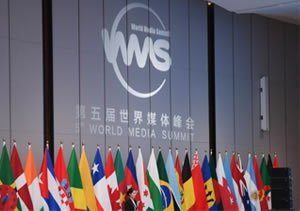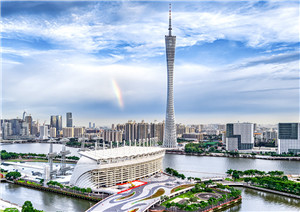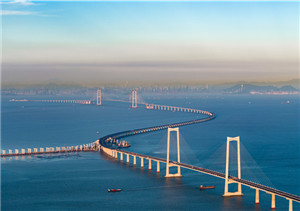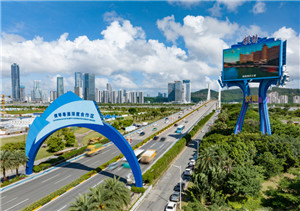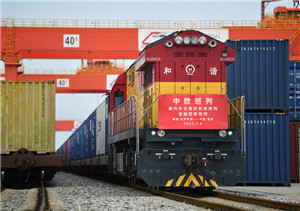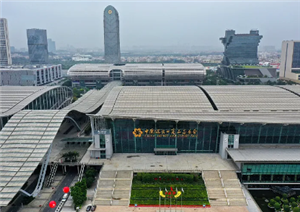Enhanced cooperation in the yacht industry could promote Hong Kong's cross-boundary tourism and help ease its berth shortage problem, while bringing sound management experience to mainland cities in the Guangdong-Hong Kong-Macao Greater Bay Area, industry leaders said.
They also called on the government to take full advantage of the experience of the Northbound Travel for Hong Kong Vehicles program and set up a similar system for the cross-boundary operation of yachts.
The Guangdong provincial government last week issued a work plan to promote the high-quality development of the yacht industry from 2024 to 2027. According to the document, the province aims to increase the market value of the yacht sector and related industries to 100 billion yuan ($13.8 billion) or more by 2027, with the number of registered yachts reaching 4,000.
Cooperation between the nine mainland cities in the GBA and the Hong Kong and Macao special administrative regions has been put in a more important position. The province will push forward with the launch of a Guangdong-Hong Kong-Macao individual yacht travel pilot scheme and strive for the implementation of a series of facilitation measures for the sailing, berthing, repair and maintenance, and tourism of Hong Kong and Macao yachts in the mainland cities.
It will also actively promote the free flow of yachts between Guangdong and the two SARs, the mutual recognition of yacht licenses and certificates for yacht operators, and the development of cross-boundary tourism products.
"The greatest significance of Hong Kong yachts' free travel and the mutual recognition in mainland cities of the GBA is that mainland industry players can learn from Hong Kong's yacht management system," said Allen Leng, chairman of Heysea Yachts Group.
"With a population of 7 million, Hong Kong's yacht number is much higher than that of other cities in the GBA. This is because the industry in Hong Kong is highly in line with the international standards."
Hong Kong boasts a number of advantages in developing the yacht industry, including good natural resources, an open management system and a solid industrial foundation, Leng noted.
But its biggest challenge is a lack of berths, he pointed out. Hong Kong currently has around 4,300 berths for yachts, far short of its roughly 12,500 licensed yachts.
"The good news is that the government is planning to develop new berths for yachts, which will surely help the city retain its advantages in the field," he said.
The berth project, which is part of Hong Kong's ambitious Airport City project, is scheduled to be completed by 2028.
Chief Executive John Lee Ka-chiu said in his latest Policy Address that Hong Kong will promote yacht tourism in the expansion area of the Aberdeen Typhoon Shelter, the ex-Lamma Quarry area and the waterfront area near Hung Hom Station.
Adrian Pang, commodore of the Royal Hong Kong Yacht Club, said the successful operation of the Northbound Travel for Hong Kong Vehicles program is a good example of how to promote the free flow of Hong Kong yachts in mainland GBA cities.
The program, which came into effect on July 1 last year, allows eligible private cars from Hong Kong to travel between the city and Guangdong via the Hong Kong-Zhuhai-Macao Bridge without being subject to regular quotas.
Currently, Hong Kong and Macao yachts can only travel to several designated sites in Guangdong and aren't allowed to move freely across the region.
"The cross-boundary vehicle program has achieved very good results. The government is advised to follow the example and adopt a similar model on yachts," Pang said.
"As more Hong Kong yachts travel to Guangdong, the problem of berth shortages and the lack of maintenance professionals in Hong Kong could also be eased. Besides, this will help promote the integrated development of tourism and the shipping industry in the GBA."
Jerry Ye, director and executive general manager of the Shenzhen Bay Marina Club, expressed a similar view.
"The mainland needs to make breakthroughs on a yacht management system, and Hong Kong can offer its expertise. There is huge potential for both sides to work together."



